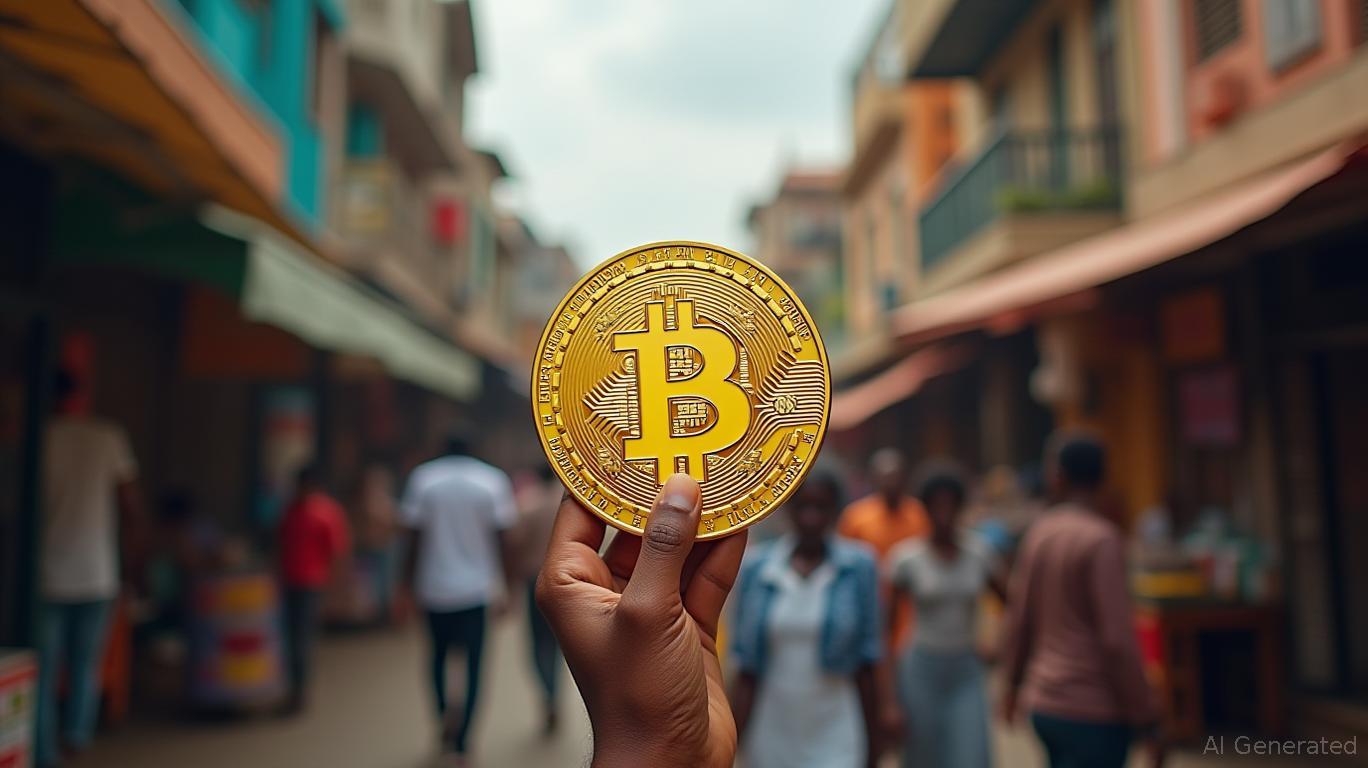Regulatory Changes Pave the Way for dYdX to Become the First Decentralized Exchange to Launch in the U.S.
- dYdX, a decentralized crypto exchange, plans to launch U.S. spot trading by late 2025, reversing prior restrictions due to regulatory clarity under Trump’s administration. - The platform will slash fees (50-65 bps) for major cryptos like Solana and adopt a non-custodial model with KYC, while delaying U.S. perpetual contracts until regulatory frameworks finalize. - A $5M–$10M token buyback program and lessons from a recent chain outage highlight efforts to stabilize operations and boost token value ahead
The decentralized crypto trading platform
dYdX’s U.S. debut comes as the regulatory landscape has become more favorable under President Donald Trump’s leadership. Recent developments, such as the dropping of lawsuits against major crypto firms and the launch of “Project Crypto” by the SEC and CFTC, are intended to provide clearer rules for digital currencies. The Investing.com article also mentioned that in September, these agencies said they would consider permitting crypto perpetual contracts—dYdX’s main offering—to be traded on regulated U.S. platforms, though dYdX will initially avoid offering these products to remain compliant with current laws.

Choosing to focus on spot trading first reflects dYdX’s gradual approach to entering the U.S. market. Zhang stated that perpetual contracts will only be introduced once the regulatory environment is “fully established,” as reported by a
FinanceFeeds report . The exchange will keep its non-custodial structure, allowing users to maintain control over their assets while completing identity checks, according to CryptoNewsZ .This expansion also comes as dYdX faces internal governance issues. In October, the platform experienced an eight-hour outage during a market downturn, leading to a $462,000 compensation proposal from its insurance fund for impacted users, as reported by
Investor Empires . The resulting governance vote, which brought attention to the vulnerabilities of automated liquidation systems during volatile periods, highlights the challenges decentralized exchanges face in balancing innovation with stability. These governance matters were also discussed by FinanceFeeds.To strengthen its token’s value before entering the U.S. market, dYdX has launched a three-month trial buyback program starting November 1, 2025. The initiative will use all net trading fees to repurchase DYDX tokens, with an estimated budget of $5 million to $10 million, according to
Yahoo Finance . This follows a similar buyback in March 2025, which saw over 5 million tokens repurchased, and takes inspiration from platforms like Hyperliquid that focus on rewarding tokenholders.Industry experts see dYdX’s U.S. expansion as a significant milestone for decentralized exchanges, which could benefit as regulators clarify the rules for crypto derivatives. If dYdX succeeds, it could become the first major decentralized exchange to legally operate in the U.S., posing a challenge to centralized players such as Coinbase and Kraken, as noted by Investing.com. The exchange’s approach is in line with Trump’s broader pro-crypto policies, which aim to bring crypto innovation back to the U.S. and build a competitive digital asset sector, a point also highlighted by CryptoNewsZ.
Disclaimer: The content of this article solely reflects the author's opinion and does not represent the platform in any capacity. This article is not intended to serve as a reference for making investment decisions.
You may also like
SUSHI +1.67% Experiences Temporary Downturn, Influenced by Market Fluctuations and Overall Token Sentiment
- SUSHI rose 1.67% on Oct 31, 2025, but fell 63.78% annually amid crypto downturns and weak governance upgrades. - Market shifts toward institutional assets and macroeconomic factors like high interest rates have worsened SUSHI’s liquidity and volatility risks. - A backtest of a 10% drop-triggered strategy showed a 42% win rate but negative long-term returns, highlighting SUSHI’s lack of sustainable bullish momentum.
Ethereum Updates: Ampersend Opens $30 Trillion AI-Agent Market Using Ethereum-Based Governance
- Edge & Node launched Ampersend, a platform integrating Coinbase’s x402 protocol and Google’s A2A framework to govern autonomous AI agents in enterprises. - Built on Ethereum standards like ERC-8004, it enables transparent agent discovery, reputation tracking, and cross-network governance via a unified dashboard. - A16z predicts AI-agent-driven procurement could hit $30 trillion by 2030, with Ampersend addressing scalability and security in decentralized AI ecosystems. - Collaborating with Coinbase, Googl

Flutterwave-Polygon Stablecoin Network May Boost African Payment Transactions by Ten Times
- Flutterwave and Polygon Labs launch Africa's largest stablecoin-based cross-border payments network across 34 countries. - The platform reduces transaction costs by 60% and settlement times from days to seconds using USDC/USDT, targeting B2B and consumer remittances. - Regulatory advancements in Nigeria, Kenya, and South Africa support stablecoin adoption, with potential to unlock $100B in annual remittance flows. - By bypassing traditional banking inefficiencies, the network empowers 57% of Africa's unb

Ethereum Updates Today: Ethereum ETFs See Withdrawals Amid Federal Reserve Signals Prompting Investor Pullback
- Ethereum ETFs saw $81.44M net outflows on Oct 29, ending a 2-day $379.93M inflow streak amid crypto market uncertainty. - Bitcoin ETFs lost $470.7M as Fed Chair Powell hinted 2025 rate cuts may end, triggering $550M combined crypto ETF exits. - ETH traded at $3,908 (2.89% 24h loss) near $4,000 resistance, with RSI 44.45 and MACD -68.13 signaling bearish pressure. - Despite ETF outflows, Ethereum's ecosystem showed resilience via 2.78% stablecoin growth and $148B decentralized exchange volume.
